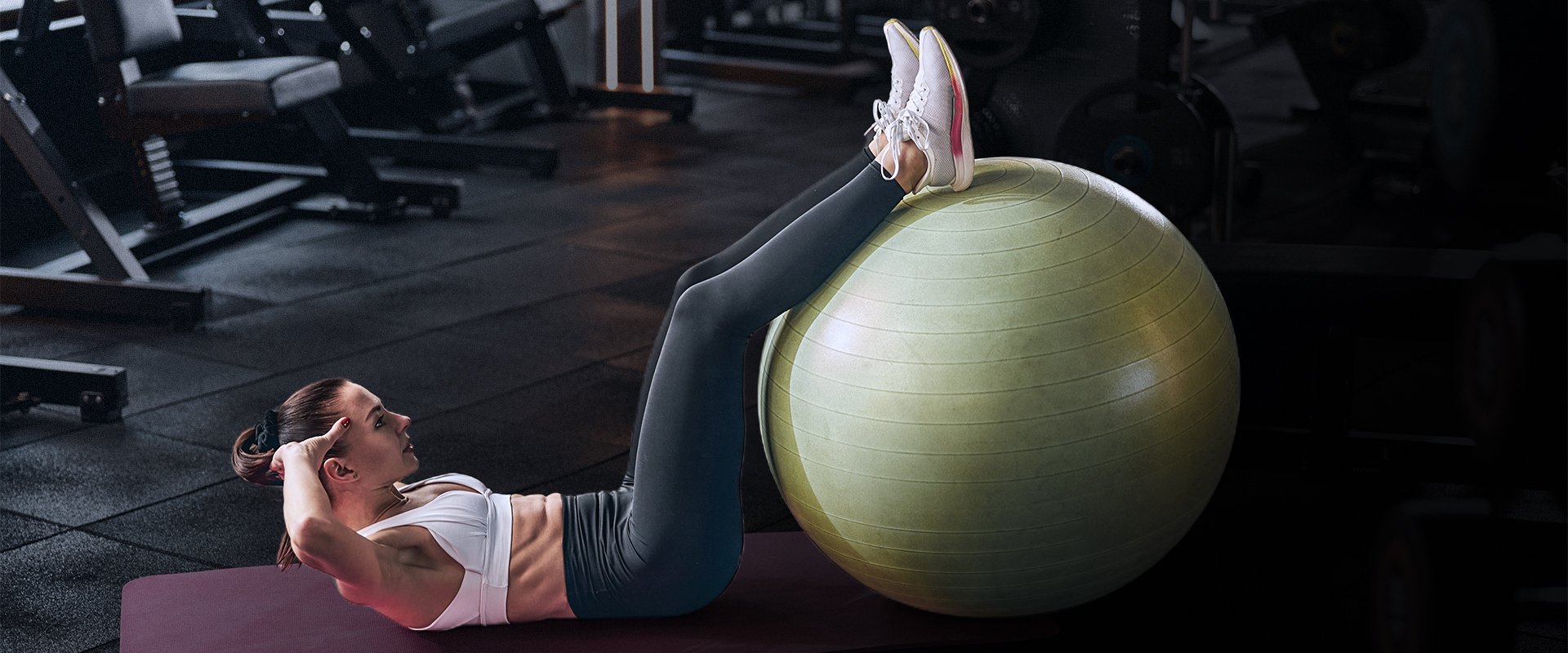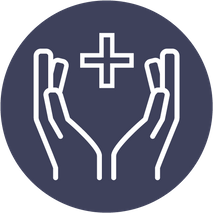
Physical Therapy for Core Stabilization
AT EVOLVE
Physical Therapy for Core Stabilization
WHAT IS CORE STABILIZATION?
Core stabilization is a common treatment intervention prescribed by physical therapists while treating conditions like low back pain, pelvic floor dysfunction and more. The term “stabilization” is a bit of a misnomer, however. With the exception of individuals who are diagnosed with an unstable spinal fracture or have severe spinal disease that compromises the integrity of the spine, it is a bit misleading to say that we need to stabilize our client’s spines because in truth, they are not unstable. Instead, core stabilization is really about achieving spinal control. While our spines are not inherently unstable, many could benefit from having better control of spinal position and activation of core musculature while performing tasks such as lifting, squatting, picking up items, running and more. Physical therapists prescribe and teach core stabilization or spinal control exercises to address a number of common conditions.
WHO CAN BENEFIT FROM CORE STABILIZATION?
Because of the important role of core musculature in just about all of the activities we do throughout our day, many individuals can benefit from core stabilization exercises. Core stabilization is often utilized as part of a comprehensive treatment program for pelvic floor dysfunction, low back pain, spinal surgery recovery, for individuals who perform labor-intensive jobs and even athletes. Core stabilization is about developing neuromuscular control so muscles are activated and utilized optimally while you perform daily tasks. In many cases, jumping right into core strengthening activities without developing proper spinal control or core muscle control can lead to less than optimal results and can even lead to injury.
WHEN WILL I BEGIN TO SEE RESULTS?
Unlike strengthening exercises which often take 4-8 weeks to really show their effects, positive results of core stabilization often come much quicker. Learning how to activate the muscles of the core properly is achieved through a series of progressive exercises.Once you develop the brain to muscle connection to turn on and control these muscles in a variety of positions, your therapist can focus more on building strength and endurance. Because neuromuscular control exercises require a lot of repetition to promote learning, you can help speed up progress by sticking with the home exercises prescribed by your therapist.
A DEEPER LOOK INTO CORE STABILIZATION
A common misconception is that the core consists only of the abdominals. The core actually refers to a group of several muscles that encapsulate the space between our ribcage, spine, abdominals and pelvis. Core muscles are typically divided into two categories, stabilizers and global movers. Stabilizer muscles should work in concert with one another to achieve several important goals:
- Control the spine during movement of the limbs
- Protect the spine from excessive and possibly injurious loads
- Transfer load from the upper to the lower body
- Increase force production capabilities in the limbs
- Promote stabilization at proximal limb structures such as the shoulders and hips
- Transversus abdominis: this muscle is the deepest of the 6 core muscles. It extends between the ribs and the pelvis with its fibers running horizontally like a belt. It can be felt most easily in the lower belly between the hip bones. When contracted it helps support the lower spine and organs and creates intra abdominal pressure.
- Internal obliques: these abdominal muscles lie on the lateral side of the abdomen and rib cage. They are aligned obliquely upward and extend from the hip bones up to the ribcage. These muscles help flex the trunk forward, to the side, create intra abdominal pressure and are essential for forced expiration.
- Diaphragm: this muscle is the primary muscle of inspiration and attaches at the inferior-most aspect of the ribcage separating the thoracic and abdominal cavities.
- Multifidus: the multifidus muscles are deep muscles that lie on either side of the lower spine. They have a role in extending and rotating the trunk and in maintaining posture.
- Pelvic floor: the pelvic floor is a dome-shaped sheet of muscles that lines the pelvis. It divides the pelvic cavity from the perineal region below it. Many muscles make up the pelvic floor and together they perform several functions including supporting pelvic organs, maintaining fecal and urinary continence and allowing voiding of urine and feces as well as sexual function and childbirth.
End Injury Progression
Physical therapy for Core Stabilization has proven to prevent injury, slow and even stop pain issues, improve performance, and reverse injury progression in many cases.
Relieve Pain
The movements used in this technique can target your entire body helping you to manage discomfort and pain during the course of your physical therapy treatments.
Improve Range of Motion
Posture awareness is an important area to focus on due to the fact that certain positions may cause you further discomfort and pain.
Restore Mobility
You can regain mobility and flexibility by taking part in the stretches and exercises as prescribed by your physical therapist.
How Long Will Physical Therapy for Core Stabilization Last?
If you decide to work with a physical therapist to help with Core Stabilization related issues, your entire treatment plan could consist of around 8-20+ different physical therapy sessions that will each last 60-90 minutes. Once you complete your customized physical therapy treatment plan, you will be able to continue to do the prescribed stretches and exercises utilized during your PT sessions yet in the comfort of your own home.
Looking for the cause of an injury
While full recovery and return to play is the ultimate goal when it comes to injury rehabilitation, a physical therapist has much more to offer. We are interested in identifying the factors that may have predisposed you to the injury in the first place so that we can make a plan to address them. This helps decrease your risk for future injury. Here are some factors that we look for when assessing a player:
- Muscle strength, power and endurance
- Flexibility and mobility in muscles and joints
- Sleep, nutrition and recovery time
- Training schedule
- History of prior injury
- The physical demands of a player’s position on the team
While some injuries are unavoidable, there may be times when internal and external factors play a role. Identifying these factors allows us to address them with a good physical therapy program or give advice on beneficial modifications to your training.
Movement and Performance Analyses
Over many years of studying the game of football, experts have determined the skills and components necessary for optimal performance. Being able to perform at your best requires that your body has enough strength, power, endurance, flexibility, etc. to not only perform your role on the field but also to manage the high training volumes on the field and in the training room. As movement experts, your physical therapist can assess your form with common training exercises like deadlifts, squats, plyometrics or running and give you insight on how to optimize the movements to enhance effectiveness and also decrease injury risk. Similarly, they can analyze common movement patterns utilized during play and determine if there are areas of weakness or impairments that should be addressed through a comprehensive training program.
So, if you are a football player who has never had an opportunity to work with a physical therapist we hope you can now see the many benefits of doing so. We want to work alongside your coaches, athletic trainers and family members to support your goals and dreams of excelling in football. Give us a call today to learn more about how we can help you take your athletic endeavors to the next level.
If you are dealing with a disc herniation and are ready to find a long-lasting solution to your pain call us today to learn more about our services and schedule an evaluation Call to Schedule a Consultation! 1-718-258-3300
Mill Basin (located in Harbor Fitness)
6161 Strickland Ave
Brooklyn, NY 11234
Monday: 7am-8pm
Tuesday: 7am-8pm
Wednesday: 8am-5pm
Thursday: 7am-8pm
Friday: 8am-1pm
Park Slope (located in Harbor Fitness)
550 5th Ave.
Brooklyn, NY 11215
Monday: 9am-8pm
Tuesday: 8am-6pm
Wednesday: 9am-8pm
Thursday: 8am-6pm
Friday: 8am-3pm
Gravesend
372 Avenue U
Brooklyn, NY 11223
Monday-Thursday: 8am-8pm
Friday: 8am-3pm
Ready to take the next step to a healthier you?
Contact Us Today!
PHYSICAL THERAPY FOR CORE STABILIZATION!
Need physical therapy for Core Stabilization?
Let our caring and compassionate physical therapists help you with relieving pain while getting you back on your feet comfortably.
Call now to schedule your first PT consultation free of charge.
Call: 1-718-258-3300







